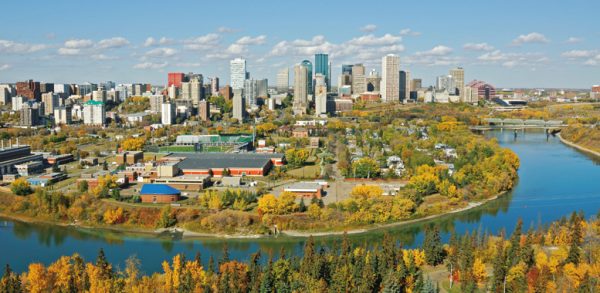I am spending part of this lovely summer evening sitting at a picnic table along the shore of a small lake. About 30 feet from me is a family of Canada Geese, the young goslings still covered in downy feathers but starting to show the color patterns that will forever mark them as Canada Geese.
Most of the shoreline of this lake is covered by cattails and bull-rushes, which is one reason why there are dozens of ducks, shorebirds, terns and blackbirds flying around or calling from the dense plant cover.
There is another family of geese with very young goslings which was thinking of coming up onto the shore at an open space until an inquisitive young boy of about 8 ran down to the shore to greet them. He didn’t get as close to the geese as he wanted as they swam off, but he is happily waving to them and urging them to come back.
The town I live in has only about 11 thousand inhabitants but many of them can be found here at some point during the day. There are walking paths around the lake, benches to rest on, a gazebo or two placed in the shade of the tall trees which also surround much of the lake. It’s quite pastoral here, and the only man-made things you can see are the pavilion on one side, right next to the playground, while off in the other direction you can see the top of the old water tower.
So it’s pretty natural environment around here, if you don’t count the tall fountain in the one small bay which is throwing a lovely shower of spray into the air.
The point is, we have this wonderful little park close to just about everywhere in town and it takes only a few minutes to drive here. More importantly, this short distance actually takes us a great deal further away from town than can be measured by the odometer; we end up far beyond the annoyances of traffic and stop lights, away from the blaring stereos and sputtering lawn mowers, well removed from the constant racket and clatter of the modern urban environment.
And we need more of this ability to escape from the harsh rendering of the built environment of cities. We need to be able to find the calmness and tranquility that can only be provided by the presence of water and trees and birds.
A United Nations report on the state of the global population estimated that in August of 2007, for the first time in human history, more of us lived in towns and cities than lived in rural areas. Which means that half of the world’s populace is living in an environment designed, built and maintained strictly by human endeavour.
And it is an environment of concrete, glass and asphalt, where trees are often seen as obstacles and water is the enemy, to be drained away as quickly as possible. An environment of discordant noise, dirty skies and unrelenting movement.
Cities evolved over the course of human history to protect us from the thing we feared most: other people. And it worked with varying degrees of success, with the inhabitants protected from the rampaging hordes of “others”. And over time, the city evolved to better protect greater numbers of people.
But these days, we no longer require protection from other people, and even if we did, a city is not the optimal solution, cities being rather large and inviting targets for modern military capability.
No, what we use cities for now is protection from the natural environment. After all, it’s not easy living off the land; crops have to be grown, fruit picked at just the right time, and sometimes the best tasting food can only be found perched on top of four, very fast legs. But if we build bigger cities, then people outside the cities will grow the food, pick the fruit and catch the four-legged tasty things.
Which means that the city has become less about personal safety from others and more about socializing with others. They are places where art and culture can thrive, where medicine is researched and where education at all levels can be passed down.
But they are not normally places where an 8 year old boy can get close to wild geese. Or where many people can spend a relaxing hour sitting on a picnic table enjoying the ducks ( and now a beaver towing with a very large branch).
With half the human population living apart from these simple pleasures, we run the risk of having the next generation grow up with almost no first-hand knowledge of what most of the planet is still like. And even more so, having very little experience of it.
There aren’t too many people who wouldn’t enjoy spending this past hour as I have. Fortunately I can do it easily enough but I would imagine I am in the minority. The expanse of concrete and glass is just too large for many people to escape for an hour.
What we really need is more trees and water and birds into our cities.
